The Erasing 76 Crimes news site focuses on the human toll of dozens of countries’ anti-LGBTI laws and the struggle to repeal them.
Editor/publisher: Colin Stewart
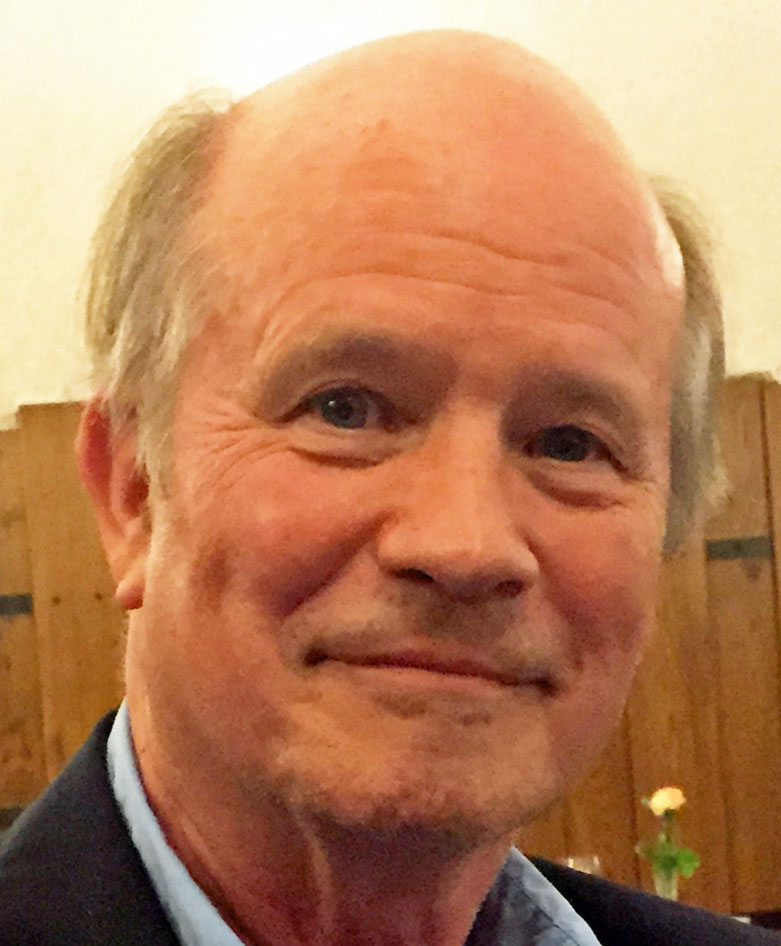
Colin Stewart is a 45-year journalism veteran living in Southern California. After his retirement from paid newspaper work in 2011, he launched the Erasing 76 Crimes news site in cooperation with members of a multi-national team of 26 LGBTI rights activists to advocate for change during the International AIDS Conference in Washington, D.C., in 2012. He is the president of the St. Paul’s Foundation for International Reconciliation, which supports LGBTQ+ rights advocacy journalism, including the Erasing 76 Crimes blog and the African Human Rights Media Network. Contact him via X (Twitter) @colinstewart or @76crimes or by email at info (at) 76crimes.com. Mailing address: 21 Marseille, Laguna Niguel CA 92677 USA. Click here for more information.
Reporter: Mike Daemon
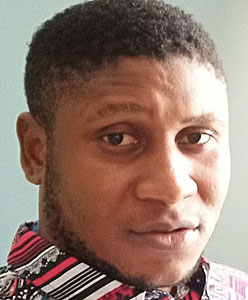
Mike Daemon is the pseudonym of the founder and presenter of the No Strings podcasts, based in Port Harcourt, Nigeria, which provide a voice for the country’s LGBTIQ+ community. Through the No Strings website, he reports on issues affecting the lives of LGBTQ+ Nigerians. He launched and maintains the Qtalk app, which provides safe and private access to legal and psychosocial counseling for LGBTQ+ Nigerians. Contact him by email via info (at) nostringsng.com.
Reporter: Jean Jacques Dissoke
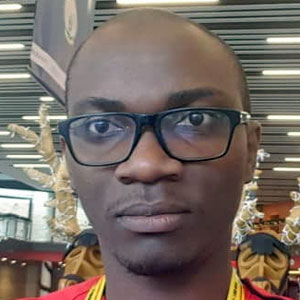
Jean Jacques Dissoke is a Cameroonian human rights defender who currently runs the organization One Advocacy Africa, which combats anti-LGBTI violence and anti-LGBTI discrimination. He is the activist whose compassion for LGBTI prisoners led to the creation of Project Not Alone, which has freed more than 30 imprisoned victims of African homophobia. On Erasing 76 Crimes and 76 Crimes en français, he fills the role of reporter covering LGBTI issues in Cameroon, where our previous reporter, Eric Ohena Lembembe, was murdered in July 2013. Both as a journalist and as an activist, he works to promote health education and to help keep gay and lesbian Cameroonians out of prison, despite the Cameroonian law against same-sex intimacy. Contact him by email via info (at) 76crimes.com.
Reporter: Kikonyogo Kivumbi
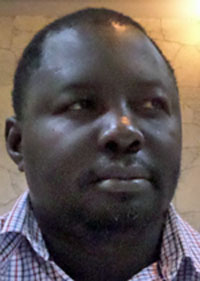
Veteran journalist Kikonyogo Kivumbi, the executive director of the Uganda Health and Science Press Association, covered AIDS and minority sexuality issues for at least 10 years. From 2014 to 2017, he served as the elected representative of Uganda’s key populations (those most at risk of contracting AIDS, including sex workers and sexual minorities) on the board that helps to oversee Uganda’s fight against AIDS, the Country Co-ordinating Mechanism (CCM) of the Global Fund. He has stepped back from active journalism because of the increased level of repression in Uganda. Contact him by email via info (at) 76crimes.com.
Editor/Reporter: Joto la Jiwe
![]()
Joto La Jiwe is the pseudonym for a Ugandan correspondent for Erasing 76 Crimes and the African Human Rights Media Network. With the protection of that pseudonym, he has been able to continue providing some coverage of Uganda, despite the increase level of repression since the passage of the Anti-Homosexuality Act of 2023. Contact him by email via info (at) 76crimes.com.
Writer: Maurice Tomlinson
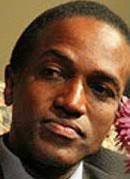
Maurice Tomlinson of Jamaica, currently only an occasional writer for Erasing 76 Crimes, was the inaugural winner of the David Kato Vision and Voice Award and has been involved in HIV and AIDS and LGBTI activism in the Caribbean for over 15 years. An attorney-at-law, he has led and supported legal challenges seeking the repeal of anti-sodomy and homophobic laws around the Caribbean. His current focus is on work as a nurse in Toronto. Contact him by email via info (at) 76crimes.com.
Editor: Rob Salerno
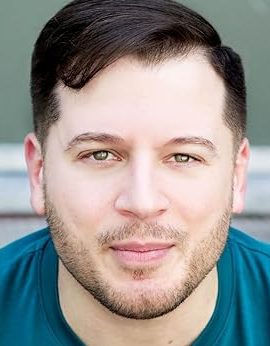
Rob Salerno is a writer, actor, and journalist based in Los Angeles, California, United States, and Toronto, Canada. Outside of his work for Erasing 76 Crimes, he covers such topics as: national, provincial, and municipal politics; community organizations and activism; human rights law; crime; media analysis; HIV/AIDS; and immigration and refugee issues. He is well-known in the LGBT community for fearlessly sharing his unconventional opinions on topics of the day. He publishes an annual roundup on LGBTQ rights and the LGBT Marriage News newsletter. Contact him by email at robert_salerno (at) hotmail.com. For more information, see About Rob Salerno.
Writer and Editor: Moïse Manoel
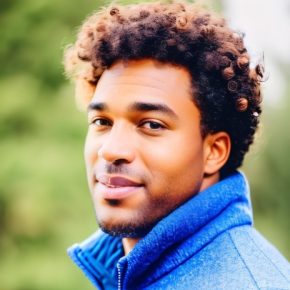
Moïse Manoël-Florisse is an African-Caribbean online journalist keeping an eye on human rights abuses in French-speaking areas. Currently living in Paris, he is a Ph.D. candidate in sociology from the University of the West Indies. His field of study and research is homophobia and neocolonialism on the Guyana Plateau in South America. He is a strong supporter of LGBT activism in Amazonia and in the Caribbean. Contact him by email via info (at) 76crimes.com.
Writer: Eric Lembembe
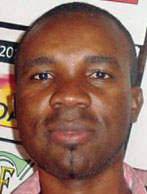
Eric Ohena Lembembe of Cameroon wrote some of this blog’s best-read articles and commentaries, which continue to attract many readers. A journalist and activist based in Yaoundé, Cameroon, he was a co-founder of the Cameroonian Foundation for AIDS. He was murdered in July 2013, which many believe was because of his advocacy for LGBTI rights.


Hello, i am an algerian gilr living in Scotland. Two days ago been rejected for Gay asylum with a reason of there is no risk to go back to Algeria and live your normal life there.
I am going to appeal now but i need to provide evidence that i cant live in Algeria as a lesbian. Becaise my family will just kill me if they find out and i cant be accepted by the community.
I need proofs of recent cases
Videos
Articles of gay people in Algeria and haters of gay people.
Thank you for your help
Here are the Algerian contacts that I have:
Associated with TenTen, the annual Algerian National LGBT Day:
Alouen, Abu Nawas (named for an eighth-century gay Arabic poet) and Gays et Lesbiennes Algériens.
Also, the online lesbian magazine Lexofanzine and GayAlgerie, the online Gay and Lesbian Portal of Algeria.
Arab LGBTQ Advocacy: Arab diaspora in the U.S. and Canada —
twitter.com/EGAYPT
Articles related to Algeria are here:
https://76crimes.com/tag/algeria
Good luck,
Colin Stewart, editor/publisher of this blog
https://www.facebook.com/100011499432008/videos/356950488031596/
please share and comment, help stop LGBT violence.
this video is important, needs to be highlighted
Hello. Shouldn’t the Joseph Odero text be updated or removed from here in light of recent events?
Hi. Thanks for the nudge. You’re quite right. That task had slipped through the cracks. He’s off the list now.
— Colin Stewart, editor/publisher of this blog
Hi I am from Britain’s Channel 4 News.
Are you able to help me please. I am trying to ascertain which countries British Colonial Era Anti-Sodomy Laws are still in place. I have a list below but I do not know if it is up to date or if I have included all the countries that were subject to Colonial era sodomy laws.
I would be grateful for you assistance.
Girish
MY LIST
Section 377 was the first colonial “sodomy law”. It became the model for countries far beyond India. Its influence stretched across Asia, the Pacific islands, and Africa, almost everywhere the British imperial flag flew.
Asia
Malaysia, and Uganda, Australia, Bangladesh, Bhutan, Brunei, Fiji, Hong Kong, India, Kiribati, Malaysia, Maldives,
Marshall Islands, Myanmar (Burma), Nauru, New Zealand, Pakistan, Papua New Guinea, Singapore, Solomon Islands, Sri Lanka, Tonga, Tuvalu, and Western Samoa.
African countries
Botswana, Gambia, Ghana[16], Kenya, Lesotho, Malawi, Mauritius, Nigeria, Seychelles, Sierra Leone, Somalia, Swaziland, Sudan, Tanzania, Uganda, Zambia, and Zimbabwe.[17]
Among these, only New Zealand Australia, Hong Kong and Fiji have put the legacy, and the sodomy law, behind them.
Dear Giresh,
I will correspond with you by email. Your list excludes all the Caribbean countries. My latest list is here: https://76crimes.com/76-countries-where-homosexuality-is-illegal/
— Colin Stewart, editor of this blog
I reply very late, but it needs saying that your list did not include the former Dominion of Canada, which shed the old Sodomy laws in 1969, where Sexual Orientation is a part of Canadian Constitution’s Charter of Rights and Freedoms (by interpretation of the Supreme Court) and where fully protected civil and human rights for LGBT now exists, including marriage and adoption rights. Canada’s Rights protections have primacy over all other legislation.
I’m writing you with an important story that deserves to be told.
My spouse Kevin and I spent 2016 in Windhoek, Namibia ??. Kevin is an environmental attorney and I’m a social worker here in Minneapolis. Kevin received a Fulbright to teach at the University of Namibia. In Windhoek we met Phillip and Guermillo, a gay couple. Both are Lecturers in Architecture at the Namibian University of Science and Technology. Guermillo is Mexican and met Phillip in graduate school in the Netherlands. Phillip is native Namibian.
Subsequently, Phillip & Guermillo have chosen to have children through surrogacy. Recently, Phillip was denied entrance into Namibia with his newborn twin daughters. The Namibian courts will be ruling on this case in the next few weeks. It has sparked an LGBTI protest movement in Namibia. Unlike South Africa, Namibia did not adopt a positive LGBTI public policy stance after gaining independence in 1991. There are no constitutional rights for LGBTI citizens and this case is really on the cutting edge of LGBTI rights in Africa. Also this is not the first case in this vein.
We are in contact via What’s ap with Phillip & Guermillo and with another gay Namibian couple who have experienced similar issues of moving between SA and Namibia.
Here is a link with lots of info – below
https://linktr.ee/bringourtwinshome
Thank you for your consideration and I hope this story is something that 76 Crimes will cover.
Gerald Tyrrell
Sent from my iPhone
Dear Gerald,
Thanks for writing to us about this dreadful situation. I hope we can cover it and help change the government’s policy.
Best,
Colin Stewart, editor of Erasing 76 Crimes
Just came across your site. Thanks for the great work you do.
Is there a reason the site’s commenting platform isn’t moderated? I’m all for discourse, but are there limits/guidance so those seeking help aren’t harassed? I came here just to read an article and most of the comments are anti-queer.
Might be worth investigating if there’s a way to guide conversations, or at least automate a limit to spamming by setting a bot to search for patterns of hate speech from a single user.
Thanks for raising the issue.
So far, the site doesn’t attract so many comments that an automated solution is not needed.
But I haven’t figured out where to draw a line that would eliminate hate speech without eliminating every single comment from anti-gay Christians. So far, I’ve blocked comments that essentially contain death threats. I don’t imagine that it would be practical to limit comments to people declaring how wonderful it is to be LGBT and/or to be inclusive. Probably there’s a sensible rule for what to exclude, but I don’t know what it would be.
— Colin Stewart, editor/publisher of this site
The Cook Islands Parliament will be asked today (12April) to repeal sections 152 to 155 of the Crimes Act which make consensual anal intercourse and consensual sexual activity between members of the same sex illegal. If approved (and the expectation is that it will be) the law will change on 1 June 2023. This is a huge step forward for the tiny South Pacific nation which made international headlines in 2020 when there were plans to tighten the existing laws and increase penalties for breaches.
Thanks you
Love the content but the website sucks. Your pages don’t load well and it takes forever and your pages partially load. This all occurs on an iphone using both cell data and wifi. You need to find a new webmaster to manage your site!
Thank You for your website. Now I know which countries to travel to and those countries are the 67 crimes.
Best wishes for your travels through impoverished and backward nations.
Hi. I live in Istanbul Turkey. I’m passive gay and I want to take refuge in the Netherlands. I’m passive gay and my English is not good. It’s hard to live as a gay, please help me.
You might try COC Netherlands. (https://coc.nl/engels/) (info@coc.nl)
They might have helpful advise for you.
Buenas tardes. Soy Rusly cachina. Una activista Trans de Guinea Ecuatorial. Donde nuestro colectivo sigue sufriendo graves violaciones de derechos humanos. Soy creadora de contenido ,también sigo muchas de sus publicaciones las cuales algunas me han orientado para hacer videos en redes denunciando toda esa ola de homofobia. Me gustaría poder denunciar y dar a conocer la situación de mi país y una crisis humanitaria actual en la isla de Annobón
I am gay 20 years old
I am gay living in Sydney, Australia and to miss my loving mate who passed away 4½ years ago. So, like that elderly lady who missed her husband on his death 3 years ago as anybody can be sad of loss of a loving partner, as loving friendship and of a loving companion. Anyway, this website of erasing 76 crimes is great but sad to learn in many countries that gays are willfully murdered for for their homosexual acts. This got to stop of these wild mobs to think they’re God to kill gays as a right but not, any justification for a mob attack as they have no right to kill them.
I am gay living in Sydney, Australia and to miss my loving mate who passed away 4½ years ago. So, like that elderly lady who missed her husband on his death 3 years ago as anybody can be sad of loss of a loving partner, as loving friendship and of a loving companion.
Thank You
Thank you for the info about Sizzla. Have alerted Atlantic City tourism about his mid-July Beachfest appearance with others.
#NoMurderMusic